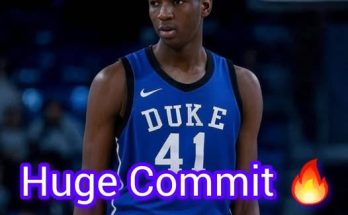In a game that saw the Indiana Fever take on the Seattle Storm, it wasn’t just Caitlin Clark dazzling with her signature deep threes or Aliyah Boston dominating in the paint—it was Lexie Hull, the 6’1” forward out of Stanford, who quietly and forcefully stepped into the spotlight, putting together the best performance of her professional career. Her 11 points and career-high 14 rebounds gave her the first double-double of her WNBA tenure, a stat line that told a deeper story of perseverance, timing, and a player finally getting her moment to shine.
For fans who have followed Hull’s trajectory, this night has been a long time coming. Drafted sixth overall in 2022, Hull entered the league with high expectations. Her collegiate resume was stacked: two-time Pac-12 All-Defensive selection, All-American honors, a national championship with Stanford. But transitioning from college dominance to professional consistency is often easier said than done. The WNBA is a compact league—12 teams, 144 players—and minutes must be earned, not given.
In her first two seasons, Hull had moments, flashes that hinted at her potential. She dove for loose balls, hustled in transition, played gritty defense, and took pride in doing the little things. But offensive opportunities were sparse. On a team packed with young talent and veteran voices, carving out a role meant understanding her value within the framework of the team and waiting for the right opportunity to show it.
That opportunity came last night against the Storm. From the opening tip, Hull looked locked in—not just in energy, which is never lacking, but in rhythm and decision-making. She was crashing the boards with intensity, outmuscling bigger opponents for rebounds. Her instincts were sharp, her positioning textbook. And when the Fever needed a momentum play, Hull delivered.
In the second quarter, she grabbed a contested rebound, pushed the ball up the floor, and found Kristy Wallace in the corner for a smooth three-pointer. A few minutes later, she followed up a missed layup with a put-back that ignited the bench. But it wasn’t just the numbers. It was how she played—calm, confident, and completely locked in. Every movement, every cut, every defensive switch felt purposeful.
Lexie Hull has always been about that purpose. Coming out of Spokane, Washington, where she starred alongside her twin sister Lacie, Lexie’s basketball identity was rooted in effort. She was a high school valedictorian and a Stanford graduate, known as much for her academic discipline as her court tenacity. She doesn’t do things halfway. That same focus is what’s kept her in the WNBA through seasons that demanded patience.
“Every player in this league is talented,” Hull said after the game, visibly emotional as she spoke with reporters. “But it’s about what you do every day. The work you put in behind the scenes. That’s what makes nights like this possible.”
Indeed, the work has never stopped. Hull has spent countless hours in the gym, refining her jumper, improving her handle, studying film. She’s sought out feedback from coaches, soaked up advice from veterans like Erica Wheeler, and molded herself into a player who understands her role but also knows when to break out of it.
Against Seattle, the timing was perfect. With Kelsey Mitchell battling foul trouble and the Storm doing everything they could to slow down Clark, Hull found pockets of space and attacked the glass with abandon. She wasn’t just a role player; she was a difference-maker.
“I thought Lexie was phenomenal,” Fever head coach Christie Sides said postgame. “She does all the dirty work every single night, but tonight, she did the flashy stuff too. And she deserved that moment.”
Hull’s teammates were equally effusive. Aliyah Boston, her voice full of joy, noted, “Lexie is one of the hardest-working people I know. She brings it every practice, every game, whether she plays two minutes or twenty. To see her rewarded like this—man, we’re so proud.”
It’s rare in the WNBA to find moments where someone who’s often overlooked grabs the spotlight and commands it with humility and grace. Hull did just that. She didn’t chase the stat line—she played within herself, within the system, and the numbers followed. But beyond the stats, what was most striking was how her performance lifted the entire team. Her energy was contagious. The bench erupted with every rebound, every hustle play. The crowd in Indianapolis, already electric due to the Fever’s improving record and Clark’s star power, gave her a loud ovation when she checked out late in the fourth quarter.
The Fever, a team on the rise after several years in the rebuilding wilderness, are learning how to win. And nights like this—where it’s not just the marquee names delivering, but the steady, quiet grinders stepping up—are what create sustainable success. Hull’s emergence as a contributor on both ends of the floor deepens Indiana’s rotation and gives the coaching staff more flexibility.
Yet beyond the team implications, this was a deeply personal night for Hull. There was a sense of catharsis, of breakthrough. For two seasons, she’s battled for minutes, stuck with it through lineup changes, DNPs, and long stretches without significant scoring. But she never wavered in her belief that her time would come.
Social media lit up in celebration. Stanford fans, Fever faithful, and fellow WNBA players took to X (formerly Twitter) to shout out Hull’s performance. “Lexie Hull BEEN that player,” one tweet read. “Just needed the moment. Salute to her.”
And the moment, finally, arrived.
It’s hard to say what this performance means in the long run. Will it lead to increased minutes? Will Hull cement herself as a key sixth woman for the Fever? Will this be a flashpoint that changes the perception of her game league-wide? Those are questions for another day.



